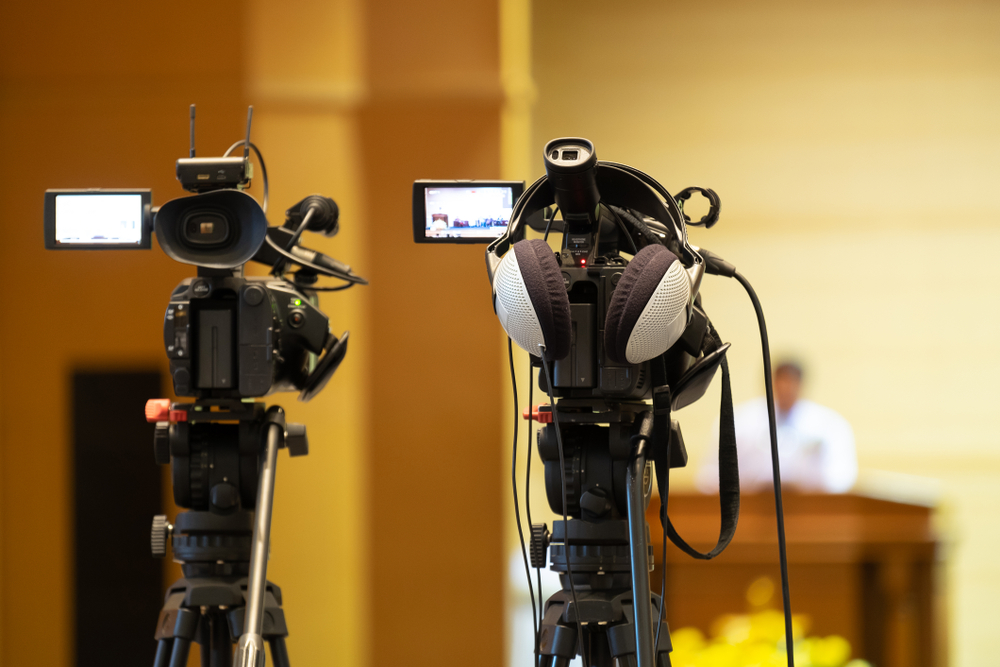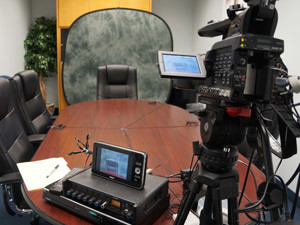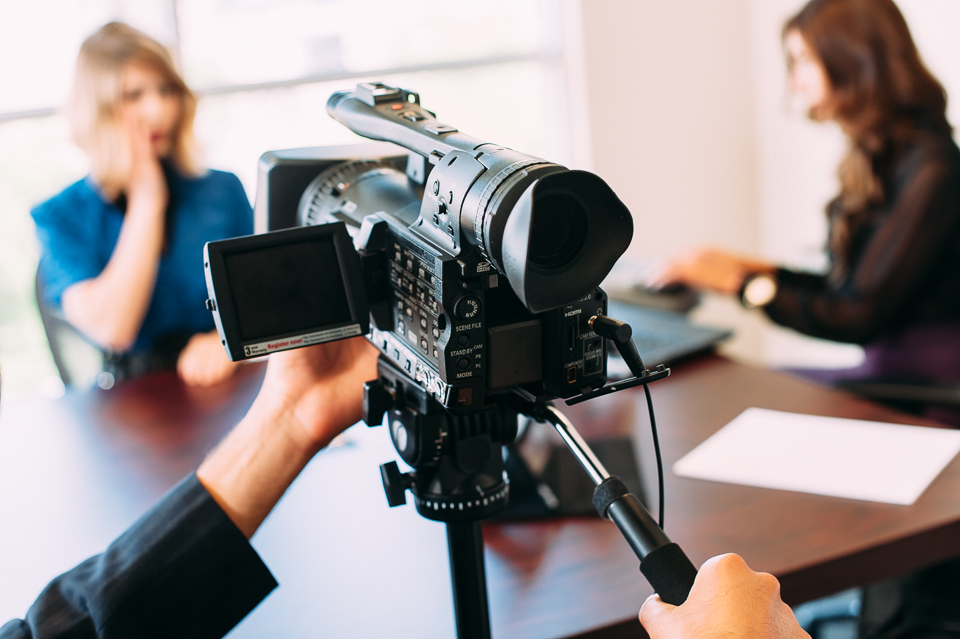How legal video depositions enhance witness credibility in courtrooms
The Importance of Lawful Video Clip Depositions in Modern Legal Solutions: What You Ought to Know
Legal video clip depositions have become essential in today's lawful landscape. They supply a multidimensional view of witness testimonies that typical records simply can not match. By recording both spoken and non-verbal communication, these depositions improve the general understanding of a witness's reputation. Nevertheless, the effectiveness of video clip depositions depends upon various variables, including conformity with legal criteria and finest practices (legal video depositions). Discovering these elements discloses their true significance in contemporary lawful services
What Are Lawful Video Clip Depositions?
Legal video clip depositions act as an essential device in the lawsuits process. They include videotaping witness testimonies in a video layout, capturing both non-verbal and verbal interaction. This approach allows attorneys to document the disposition, expressions, and responses of witnesses, providing a richer context for the statement. Normally performed in a controlled environment, these depositions are led by attorneys who ask concerns while a stenotype reporter records the dialogue. The resulting video can be important for test prep work, as it makes it possible for legal representatives to analyze the credibility of witnesses and fine-tune their methods. Furthermore, lawful video clip depositions can be used in numerous lawful contexts, ranging from civil disputes to criminal cases. The visual and auditory components of video clip depositions boost the presentation of proof, making it a vital part in the modern-day legal landscape. Generally, they add considerably to the effectiveness and efficiency of legal proceedings.

Advantages of Video Depositions Over Conventional Techniques
Video depositions provide various advantages contrasted to typical approaches of taking witness statements. One considerable benefit is the ability to record both audio and aesthetic elements, providing an extra thorough document of the witness's statements. This dual layout boosts clearness and allows lawful specialists to reference certain nuances throughout trial preparation. In addition, video clip depositions help with remote engagement, making it much easier for witnesses who might be not available for in-person appearances because of geographical restrictions or wellness issues.Moreover, video depositions can expedite the total deposition process, lowering the time and costs linked with travel and logistics. They additionally enhance accessibility, as taped depositions can be easily shared amongst legal groups and referenced at any time. This ease contributes to far better case monitoring and preparation. Generally, video depositions represent a modern-day, efficient method to collecting witness testaments, aligning with the evolving needs of the legal career.
The Duty of Body Movement and Tone in Testimonies

In legal video clip depositions, body movement and tone play essential roles in communicating a witness's reliability and dependability. Nonverbal signs can offer understandings right into a witness's emotional state, affecting how their testimony is regarded. Comprehending the impact of these aspects is important for jurors and lawyers alike when evaluating the reliability of a statement.
Nonverbal Interaction Insights
While spoken communication is often stressed in legal statements, nonverbal signs such as body language and tone play a crucial role in sharing reputation and feeling. Onlookers of depositions might note that a witness's posture, motions, and faces can substantially affect perceptions of reliability. For example, regular eye contact may signal self-confidence, while staying clear of stare can suggest deceit or pain. Likewise, the tone of voice-- its pitch, volume, and rate-- can present sensations of sincerity or uncertainty. Lawful experts must be in harmony with these nonverbal signals, as they commonly offer critical context that enhances spoken words. Understanding these nuances can enhance the performance of depositions and influence the end result of lawful procedures.
Psychological Tone Effect
The psychological tone communicated throughout legal testaments considerably impacts exactly how a witness is perceived. Body language, singing inflections, and faces play essential roles in forming the narrative of a testament. A witness exhibiting self-confidence with constant eye get in touch with and a tranquil tone can instill a feeling of integrity and interaction. Alternatively, signs of stress and anxiety, such as fidgeting or a shaky voice, may bring about hesitation concerning their account. The subtleties of emotional expression can influence the analysis of facts, making it vital for lawful professionals to acknowledge these signs. In video clip depositions, the visual and auditory components integrate, highlighting the significance of emotional tone in communicating genuineness and reliability within the legal process.
Integrity and Credibility
A crucial variable in developing reliability and credibility during testaments hinges on the witness's body movement and intonation. Viewers commonly depend on non-verbal signs-- such as eye contact, position, and gestures-- to analyze a witness's genuineness. For circumstances, a witness who maintains eye get in touch with and presents open body movement might be regarded as even more reputable and truthful than one who avoids eye contact or appears shut off. Additionally, intonation plays a crucial duty; a consistent, calm tone can reinforce the reliability of the testimony, while variations in pitch or volume may elevate questions. Ultimately, the combination of body movement and vocal tone greatly affects how a witness's declarations are gotten and interpreted in a lawful context.
Finest Practices for Conducting Video Clip Depositions
Performing video depositions requires cautious planning and implementation to ensure a reliable and clear presentation of testimony. It is crucial to pick a peaceful, well-lit area to reduce distractions and safe optimal video top quality. The devices needs to be evaluated beforehand, including electronic cameras, microphones, and illumination, to stay clear of technical problems throughout Read Full Article the deposition.Next, parties included must examine the layout and procedures in advance, making certain that everybody recognizes their roles. The deponent needs to be briefed on the procedure, including exactly how to react plainly and concisely.Additionally, maintaining an expert disposition throughout the session is crucial. This includes abstaining from talking over each other and confirming that all concerns are guided suitably. Ultimately, it is vital to videotape the deposition in a format that enables very easy playback and testimonial, protecting the honesty of the testament for future usage.
Lawful Factors To Consider and Compliance Issues
How do legal considerations and compliance problems affect the efficiency of video clip depositions? Attorneys have to browse an intricate landscape of regulations, ensuring that video depositions comply with administrative regulations and criteria. Conformity with regulations worrying privacy, approval, and videotaping techniques is necessary. For example, acquiring specific consent from all celebrations entailed is needed to prevent legal repercussions.Additionally, the admissibility of video proof in court can pivot on compliance with step-by-step needs. Guaranteeing that the equipment made use of satisfies technical requirements is also vital, as low quality can threaten the deposition's reliability.Moreover, lawyers must know any kind of particular state laws that regulate video depositions, as these can differ greatly. Failing to deal with these factors to consider can not only jeopardize the honesty of the deposition but additionally impact the total case method, ultimately impacting the client's lawful end results.
Exactly How Video Clip Depositions Effect Court Perception
While video clip depositions can act as powerful devices in legal procedures, their impact on jury assumption is significant. The auditory and aesthetic components of video recordings supply jurors with a more complete understanding of witness disposition, trustworthiness, and emotional reactions. This multimedia technique can boost the jurors' ability to examine the integrity of testimony compared to standard text-based transcripts.Moreover, video clip depositions enable jurors to observe body language, intonation, and faces, every one of which can impact their interpretation of the witness's statements. The existence of a witness on display can humanize them, cultivating empathy and connection, which may persuade jurors' point of views. Conversely, a witness who appears evasive or unreliable on video clip might bring about unfavorable understandings that affect a court's choice. Inevitably, the vibrant nature of video clip depositions plays an essential duty in forming just how jurors analyze evidence and reach their verdicts.
The Future of Video Depositions in Legal Practice
As developments in innovation continue to reshape the legal landscape, the future of video depositions is positioned for substantial advancement. Technologies such as artificial intelligence, digital fact, and boosted video clip conferencing tools are expected to streamline the deposition process and boost access. Attorneys might use AI-driven analytics to evaluate witness trustworthiness and case strength extra effectively.Moreover, the assimilation of online reality can permit juries to experience immersive simulations of depositions, offering her response deeper context and understanding. In addition, the pattern toward remote depositions is most likely to continue, providing better adaptability for attorneys and clients alike.As remote work comes to be progressively normalized, video clip depositions will likely end up being basic technique, minimizing costs and time restraints connected with typical approaches. Overall, these technological developments assure to enhance the performance, efficiency, and availability of video clip depositions in legal practice, inevitably transforming just how attorneys get ready for test.
Often Asked Inquiries
How Much Do Lawful Video Depositions Commonly Expense?

Can Video Depositions Be Made Use Of in Any Kind Of Case?
Video clip depositions can be made use of in various kinds of instances, including civil, criminal, and household regulation. Their adaptability allows attorneys to existing witness testaments efficiently, adapting to the certain demands of different legal circumstances.
What Devices Is Required for a Video Clip Deposition?
To conduct a video deposition, necessary tools consists of a top quality cam, microphone, lights, and a reliable recording device. Furthermore, a computer with modifying software program might be essential for post-production and formatting the final video.
How Long Does a Typical Video Deposition Last?
A regular video clip deposition lasts in between 2 to 4 hours, relying on the intricacy of the situation and the variety of questions presented. Extended sessions may happen, but breaks are typically included for individual comfort.

Are Video Clip Depositions Admissible in Court?
Video depositions are typically acceptable in court, offered they follow legal standards and rules of proof. Their usage improves clearness and preserves witness testimony, assisting in the judicial procedure throughout trials and hearings. Lawful video clip depositions have become important in today's legal landscape. In addition, lawful video depositions can be utilized in numerous lawful contexts, ranging from civil disputes to criminal instances. Furthermore, video depositions facilitate remote engagement, making it much easier for witnesses who might be not available for in-person appearances due to geographical constraints or wellness issues.Moreover, video depositions can expedite the total deposition process, reducing the time and expenses associated with traveling and logistics. Making sure that the equipment made use of satisfies technological requirements is also crucial, as poor top quality can weaken the deposition's reliability.Moreover, lawyers should be aware of any type of specific state regulations that govern video clip depositions, as these can vary substantially. Additionally, the fad toward remote depositions is most likely to persist, using greater versatility for lawyers and clients alike.As remote work comes to be increasingly stabilized, video clip depositions will likely become typical practice, legal video depositions minimizing costs and time restrictions linked with traditional techniques.